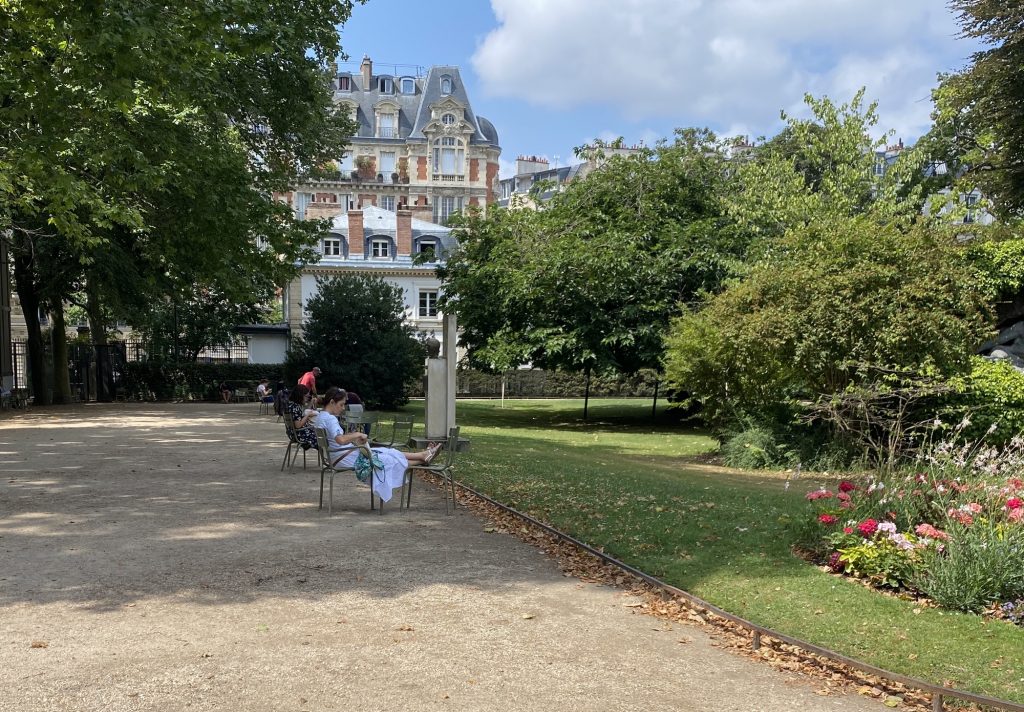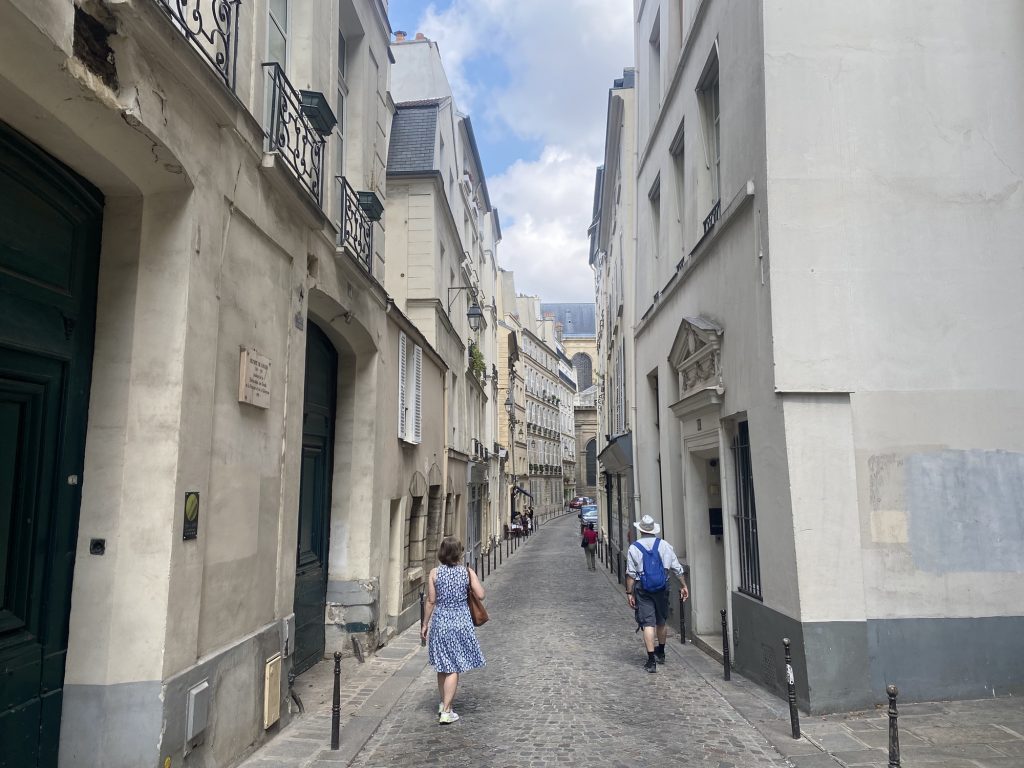
Ten days. I’ve been in Paris long enough that I’m annoyed by the brief guitar chord played before announcements en Le Metro.
C’est tres énervant.
My wife, Teresa, is an urban planner with a particular interest in open spaces. So, we’ve spent a good deal of time visiting parks, sitting in plazas, looking at people, making observations about how the space is used, who is there, how it was designed.
At first I thought of this as a kind of pleasant, idle activity. But over the years of open space observation with my wife, I’ve realized that it actually reveals a certain group psychology: How do populations want to interact with each other, and what sort of things do they value?
I can tell you this about France: Open spaces are highly maintained, with tremendous public and private resources spent on maintaining them. Even shuttered, abandoned stores have a certain upkeep, where landlords will plaster over windows with some sort of poster display or artful covering. Plazas and squares are immaculate, with flowers, well-kept street furniture, and refined signage. Every day and night, cafes sweep up their spaces, put out tables and chairs anew, then pull them in for the night, clearing out their space. Many small market shops do this too, using the sidewalk for displays and customer interaction.
There is an enormous amount of work put in by many, many people to ensure public displays and spaces are highly maintained.
But then there are certain expectations of the public on how you are supposed to interact with those spaces. When you come to a cafe or plaza, you take a seat, properly organize yourself and take just the space you need. No sprawling. No playing boomboxes, no skateboarding, revving motorcycle engines, boisterous yelling, playing catch, setting up camp in a space, lounging around in skimpy clothes (both men and women), or generally dominating the area.
It’s a similar expectation for parks. There are movable chairs arrayed in parks, but for the most part, you don’t sprawl out on the grass. You don’t bring a big gathering of people to hold a BBQ, or set up a volleyball net, or a hammock.
The French expect reserved behavior. Parks, plazas, and cafes are designed for that. And so they are extremely attractive to look at, but if you’re looking for a place to play catch, or host a family reunion, you’ll have to look elsewhere.

Also in Paris, the state – L’Etat – is everywhere. It owns the churches, all the museums, the streets, plazas, many commercial spaces, and controls public interactions. For instance: In The U.S., private organizations often host street fairs in neighborhoods. Not in France. There are festivals, but they are organized by the state. Can you imagine this kind of restraint and state control in Spain? The Middle East?
This is all possible because France strives for a monoculture. Yes, there are lots of immigrants, and they have different ideas about what a proper society should be like, but the mere fact that this is a struggle – are you allowed to wear a hijab to school? – is an indication of how France views itself.
Teresa and I were trying to imagine how France’s highly organized parks and plazas would be used in America’s multicultural society. Where would large Mexican families set up their volleyball nets? Where would Black families gather to wear awkward matching t-shirts for family reunions? Where would old Chinese men lounge around in flip flops and open shirts?
These may seem like stereotypes, but take a walk through big American city parks on a weekend and you’ll see this stuff every time. American people of all types doing what makes them comfortable.
In France, they like to be comfortable by being reserved.